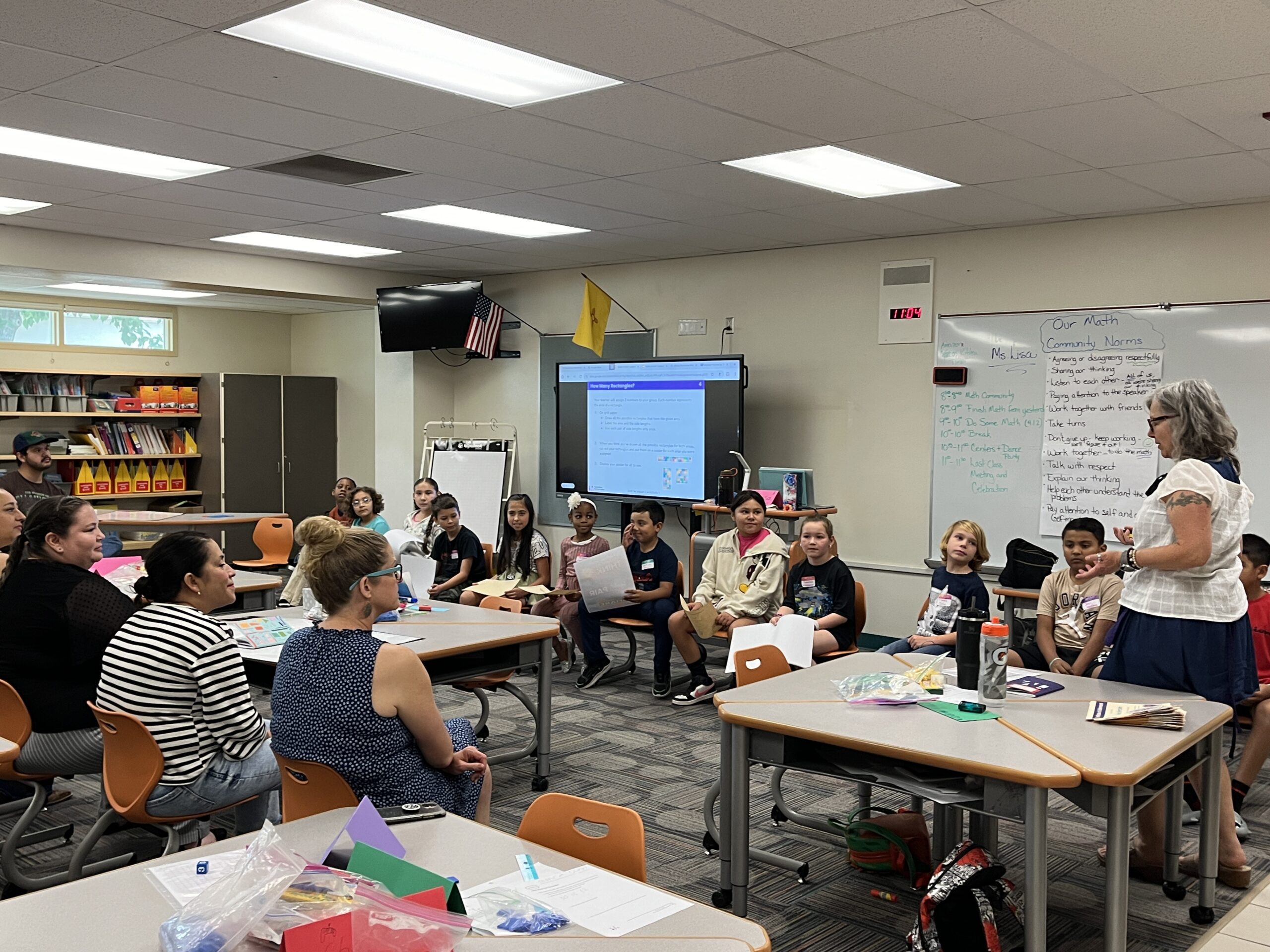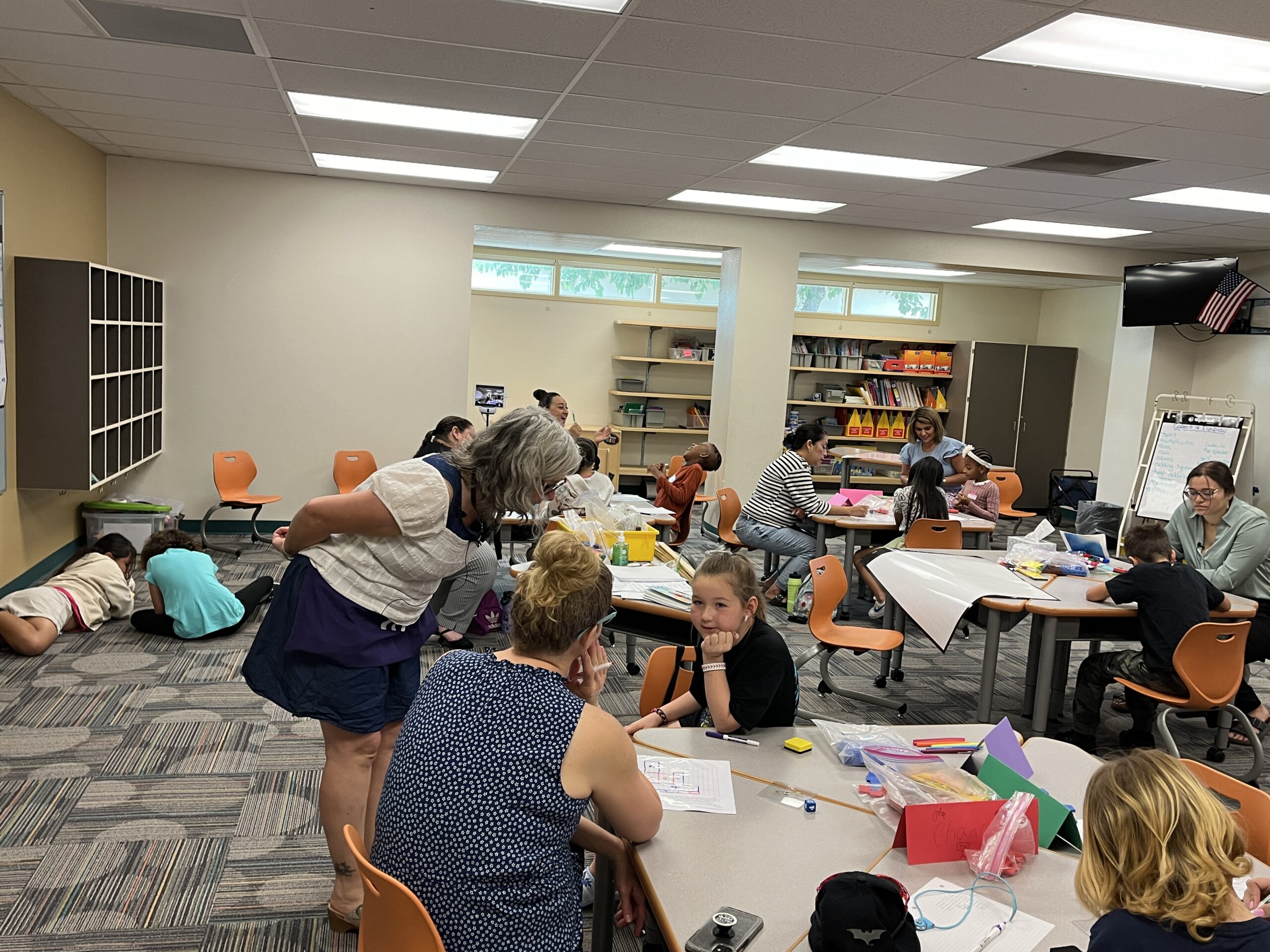By Anita Crowder, PhD, Senior Director, Impact Research and Jennifer Wilson, EdD, Senior Director, Implementation Enablement
Adopting a problem-based instructional model offers both opportunities and challenges for educators. How do we respond when teachers say, “But my students can’t . . .”?
Teacher beliefs about how and what students can learn have a direct impact on student mathematics achievement and identity. At the NCSM annual conference, we presented outcomes of a replicable professional learning model that positively shifts teacher and student beliefs about learning mathematics.
Math educators often hope for classrooms where all students have access to meaningful learning, where student thinking is valued, and where students can confidently communicate their mathematical ideas. IM MathLab is an impetus for shaping what this ambitious, classroom-centered instruction looks like—transforming teachers’ beliefs that their students can learn through a problem-based instructional model and that they, as educators, can successfully teach this way.

IM MathLab, based on Dr. Deborah Ball’s Mathematics Labs concept, offers educators the opportunity to:
- observe and debrief classroom instruction in real-time with colleagues and a skilled facilitator
- analyze and discuss student work from the observed class
- interview the local IM MathLab teacher and instructional coach for additional insight into the instruction
- apply what was observed during the IM MathLab class to their own practice

IM MathLab is a flexible learning model, co-designed with instructional leaders. It can be implemented during the school year, integrated into summer school, or offered as a standalone summer camp.
Hear from students and educators about their experience participating in an IM MathLab summer camp:
IM MathLab teacher reflections
IM MathLab student reflections
Conclusion:
Data from participating teachers and students show that IM MathLab helps students gain confidence in their identities as mathematicians, builds teachers’ trust in students’ ability to learn through problem-based instruction, and encourages teachers to reflect on practices that support all students’ willingness to participate and engage in learning.
Long-term impacts include improved student attitudes toward mathematics and teachers who intentionally build mathematical communities in their classrooms. These teachers are more likely to use a problem-based instruction model and to share their successes and challenges with colleagues, contributing to a culture of collaboration and continuous growth.
Next Steps:
If you’d like to stay connected to opportunities to learn more about IM MathLab, please complete this interest form.
Visit our IMpact page to learn more about how MathLab supports teachers and students in building confidence, problem-solving skills, and a stronger mathematical identity.
 Anita Crowder, PhD
Anita Crowder, PhD
Senior Director, Impact Research
Anita Crowder, PhD, is the senior director of impact research at Illustrative Mathematics. Dr. Crowder has a BS in systems and control engineering, an MA in secondary mathematics education, and a doctorate in educational psychology with a focus on broadening participation in STEM among youth from minoritized and marginalized communities. She plays the piano and saxophone and enjoys writing and art.
 Jennifer Wilson, EdD
Jennifer Wilson, EdD
Senior Director, Implementation Enablement
Jennifer Wilson (she/her) of Black Mountain, NC, enjoys learning alongside the Illustrative Mathematics community as the senior director, implementation enablement. She is a National Board Certified teacher, and she taught and learned mathematics with students and teachers in Mississippi for 25 years. She is a recipient of the Presidential Award for Excellence in Mathematics and Science Teaching (2011) and has blogged at Easing the Hurry Syndrome and The Slow Math Movement. Jennifer thinks a lot about how we might slow down and savor learning math through curiosity, collaboration, and connections.
